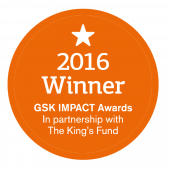LGBT RESOURCES
These resources published by London Friend and our partner organisations can help health care professionals and commissioners of health care services in your work supporting LGBT people.
DRUGS & ALCOHOL
Published by London Friend in 2014 Out Of Your Mind aims to improve drug & alcohol services for LGBT people. It contains a number of recommendations for policy makers, commissioners, service providers, front-line drug & alcohol workers and researchers. The resource contains a set of audit tools to self-assess existing competence with guidance to develop personal and professional action plans for improvement.
Alcohol Identification & Brief Advice: LGBT Briefing
This briefing was produced by London Friend and other members of the National LGBT Partnership in collaboration with Public Health England. It examines alcohol identification and brief advice (IBA) interventions - a key Government strategy to reduce alcohol-related harms - from an LGBT perspective, with suggestions for commissioners, healthcare staff and LGBT organisations to ensure IBAs reach an LGBT audience.
NEPTUNE Clinical Guidance for Novel Psychoactive Substances
London Friend's Chief Executive is a member of the expert panel that informs Project NEPTUNE, the Novel Psychoactive Substances UK Network. NEPTUNE has published the UK's first clinical guidance for the acute and chronic management of novel psychoactive substances (NPS). These guidelines provide advice for professionals working with users of NPS in clinical settings.
NEPTUNE has also published an LGBT supplement to the main guidance document.
Published by Sigma Research. This study looks at the emerging issue of chemsex - the sexualised use of drugs by gay & bisexual men. Commissioned by the London Boroughs of Lambeth, Southwark and Lewisham this is the first extensive study of chemsex in the UK.
Chemsex Briefing from Public Health England
This briefing describes chemsex with data from Public Health England and prompts for commissioners and providers of substance misuse and sexual health services when planning and delivering services.
This study into LGBT people's drug & alcohol use was conducted by the LGBT Foundation, and contains findings from service user surveys together with case studies and briefings for commissioners, GPs, LGBT organisations and researchers.
LESBIAN & BISEXUAL WOMEN
Best practice in providing healthcare to lesbian, bisexual and other women who have sex with women
Lesbian, bisexual and other women who have sex with women (LBWSW) have too often been an invisible group within health care. Their needs can be doubly hidden, both within the topic of women’s health, which often focuses on reproductive health, and in the health needs of the LGBT community in general. This report by the National LGBT Partnership aims to highlight women’s experiences of both good and poor practice in healthcare provision, and make recommendations for both practice and strategy in order to improve women’s health overall.
TRANS
This series of fact sheets has been produced by members of the National LGBT Partnership, including London Friend, together with other trans organisations. They cover a range of issues relating to trans health, including accessing gender identity services; sexual health; mental health & well-being; alcohol, drugs & tobacco; and others.
MENTAL HEALTH
LGBT Mental Health Resources for Practitioners and Service Users
Published by the National LGBT Partnership. Research consistently finds that LGBT people experience higher rates of mental health problems than other groups. Additionally, LGBT people often do not feel able to be open about their gender and/or sexual identities with health professionals, and some still sadly experience discrimination from services or practitioners.
Dementia Care and LGBT Communities
Published by the National Care Forum working with the National LGBT Partnership and the Voluntary Organisations Disability Group this report looks at the issues faced by LGBT people with dementia, which are not specifically addressed in the National Dementia Strategy.
SMOKING
LGBT people report higher prevalence of smoking than the general population. These resources produced by the National LGBT Partnership provide support for Local Authorities and organisations to ensure LGBT people receive effective smoking cessation support.
HEALTH OUTCOMES
Public Health Outcomes Framework: LGBT Companion
This companion document to the Public Health Outcomes Framework (PHOF) provides support for those commissioning and delivering public health services. It addresses each domain and indicator in the PHOF collating evidence where this relates to LGBT health inequalities with case studies and good practice guidelines to help organisation implement the report's recommendations. The report is published by the National LGBT Partnership and others, and is supported by the Department of Health and Public Health England.
Adult Social Care Outcomes Framework: LGBT Companion
Similar to the Public Health Outcomes Framework companion the ASCOF LGBT Companion provides support for those commissioning and delivering adult social care, linking evidence of LGBT health inequalities to each of the Framework's domains and indicators. The report is published by the National LGBT Partnership, and is supported by the Department of Health.
Out Loud: LGBT Voices in Health & Social Care
Published by the National LGBT Partnership in collaboration with National Voices, and developed through working with diverse LGBT communities, the set of narrative statements published in this document explain that lesbian, gay, bisexual and trans people want high quality health and social care that takes account of their sexual orientation and/or gender identity, and describe what this might look like.
Still Out There: An Exploration of LGBT Londoners' Unmet Needs
This research explores the unmet health and support needs of LGBT Londoners, collated from interviews with 158 service users and 60 service providers. London Friend worked in partnership with other LGBT sector colleagues (LGBT Consortium, GMFA, Stonewall Housing & Metro) to produce this report which was funded by Trust for London, with research conducted by Anglia Ruskin University.




